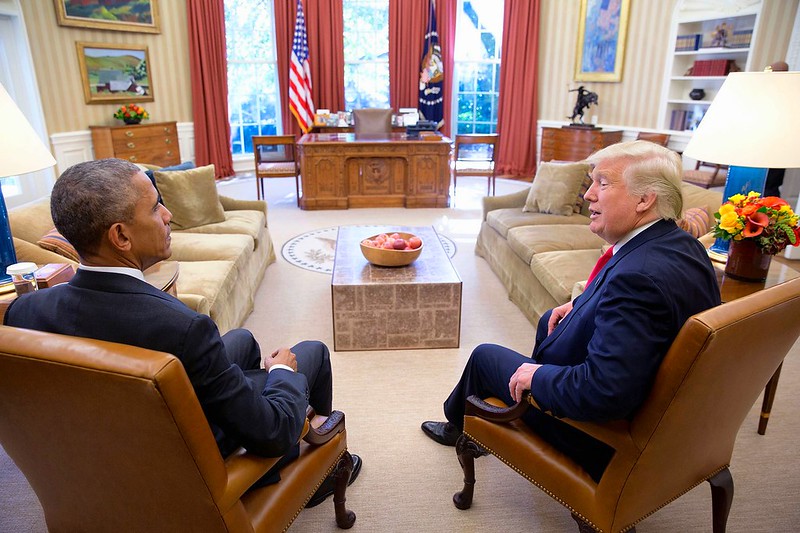Blog
News
VOX-Pol Coordinator Joins Journal for Deradicalization Editorial Board
November 23, 2020The Journal for Deradicalization (JD) has announced that Prof. Maura Conway has joined their Editorial Board. JD is the only independent and peer reviewed online journal about processes of radicalisation and the theory and practice of deradicalisation globally. In a tweet thanking the journal’s editor for the invitation to join the Board, Prof. Conway reaffirmed her commitment to open access academic publishing. ...
Blog
What We Get Wrong About Online Radicalization
November 18, 2020By Dimitrios Kalantzis Less than 24 hours after John Earnest opened fire at a San Diego-area synagogue killing one person and injuring three others, the focus of the developing story shifted to his digital life. News outlets reported that Earnest “posted an anti-Jewish screed online about an hour before the attack” and “praised the suspects ...
Blog
The Terrorist Content Analytics Platform and Transparency by Design
November 11, 2020This is a response to last week’s blog post One Database To Rule Them All: The Invisible Content Cartel that Undermines the Freedom of Expression Online. [Ed.] By Tech Against Terrorism Summary Tech Against Terrorism focusses on providing practical support to the tech sector in tackling terrorist use of the internet whilst respecting human rights. ...
Blog
One Database to Rule Them All
November 4, 2020A response to this article can be found HERE. [Ed.] By Svea Windwehr and Jillian C York The Invisible Content Cartel that Undermines the Freedom of Expression Online Every year, millions of images, videos and posts that allegedly contain terrorist or violent extremist content are removed from social media platforms like YouTube, Facebook, or Twitter. ...
Blog
Blind Networks in the Extreme-Right
October 28, 2020By Ben Lee A potent combination of technology and a fractured extreme-right is producing innovative organisations that are harder to police. In April 2020 two men aged 20 and 22 were arrested after posting racist stickers in public spaces across the city of Sheffield. The stickers featured various slogans critical of the government’s handling of ...
Blog
Social Media Extremism Can Also Be Asymptomatic: Policy Recommendations
October 21, 2020By Mark Dechesne At a time when world news headlines are dominated by Covid-19, we must not forget that for the past decade, the nations of Europe have been plagued by another fast-spreading and often deadly epidemic: the circulation of socially corrosive, extremist language via social media. This type of social media communication has helped ...
Blog
Delivering Interventions Online
October 14, 2020By Robert Örell How do violent right-wing extremists exploit the online space? Violent right-wing extremists (VRWE) use the online space to spread their ideology and to reach vulnerable individuals to recruit online. The online platforms operated by extremist groups oftentimes help these vulnerable youngsters form new relations and build a new identity online. They report ...
Blog
‘Incel’ Violence Is a Form of Extremism. It’s Time We Treated It as a Security Threat
October 7, 2020By Sian Tomkinson, Katie Attwell and Tauel Harper In May 2020, a 17-year-old boy in Toronto was charged with an act of terrorism in the alleged killing of a woman with a machete – the first time such a charge has been brought in a case involving “incel” ideology. Also in May, a 20-year-old man ...
Blog
Triggered by Defeat or Victory? Assessing the Impact of Presidential Election Results on Extreme Right-Wing Mobilisation Online
September 30, 2020This article summarizes a recent study published in Deviant Behavior. By Ryan Scrivens, George W. Burruss, Thomas J. Holt, Steven Chermak, Joshua D. Freilich, and Richard Frank Research has overwhelmingly found that central offline events influence online activity and highlight an important interaction between people’s on- and offline worlds. Less, however, is known about the ...
Blog
The Name of the Game in Radicalisation Prevention
September 23, 2020By Michael Hartinger and Daniela Pisoiu Radicalisation and recruitment to violent extremism and terrorism occur in various ways and a myriad of rhetorical and visual elements have been used to that extent, increasingly online. Gamification and actual video games have recently increased in relevance, as Islamist and right-wing groups have recognised their potential for attracting ...









